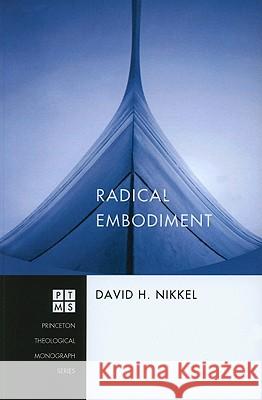Radical Embodiment » książka
Radical Embodiment
ISBN-13: 9781556355783 / Angielski / Miękka / 2010 / 202 str.
Radical Embodiment
ISBN-13: 9781556355783 / Angielski / Miękka / 2010 / 202 str.
(netto: 112,27 VAT: 5%)
Najniższa cena z 30 dni: 117,56
ok. 16-18 dni roboczych.
Darmowa dostawa!
Description: ""Radical embodiment"" refers to an anthropology and an epistemology fundamentally rooted in our bodies as always in correlation with our natural and social worlds. All human rationality, meaning, and value arise not only instrumentally but also substantively from this embodiment in the world. Radical embodiment reacts against Enlightenment mind-body dualism, as well as its monistic offshoots, including the physicalism that reduces everything to component matter-energy at the expense of subjectivity and meaning. It also rejects against certain forms of postmodernism that reinscribe modern dualisms. David H. Nikkel develops the perspective of ""radical embodiment"" by examining varieties of modern and postmodern theology, and the nature and role of tradition-in terms of linguistic and non-linguistic experience, the religion and science dialogue on the nature of consciousness, and the immanent and transcendent aspects of God. Endorsements: ""David Nikkel's Radical Embodiment makes a strong and persuasive case against the philosophical fracturing of reality that stems from the modern legacy of mind/body dualism. Nikkel's alternative is a scientifically informed, philosophically insightful, and theologically sensitive panentheistic model of radical embodiment that aims to counter the postmodern metaphysical 'homelessness' of both God and human beings. This rich, clear, and engaging work will serve to remind us that, indeed, we are at home in the universe."" --Eric Weislogel Vice President for Academic Affairs Metanexus Institute About the Contributor(s): David H. Nikkel is Associate Professor of Religion at the University of North Carolina at Pembroke. He is the author of Panentheism in Hartshorne and Tillich: A Creative Synthesis (1995).
Description:""Radical embodiment"" refers to an anthropology and an epistemology fundamentally rooted in our bodies as always in correlation with our natural and social worlds. All human rationality, meaning, and value arise not only instrumentally but also substantively from this embodiment in the world. Radical embodiment reacts against Enlightenment mind-body dualism, as well as its monistic offshoots, including the physicalism that reduces everything to component matter-energy at the expense of subjectivity and meaning. It also rejects against certain forms of postmodernism that reinscribe modern dualisms.David H. Nikkel develops the perspective of ""radical embodiment"" by examining varieties of modern and postmodern theology, and the nature and role of tradition-in terms of linguistic and non-linguistic experience, the religion and science dialogue on the nature of consciousness, and the immanent and transcendent aspects of God.Endorsements:""David Nikkels Radical Embodiment makes a strong and persuasive case against the philosophical fracturing of reality that stems from the modern legacy of mind/body dualism. Nikkels alternative is a scientifically informed, philosophically insightful, and theologically sensitive panentheistic model of radical embodiment that aims to counter the postmodern metaphysical homelessness of both God and human beings. This rich, clear, and engaging work will serve to remind us that, indeed, we are at home in the universe.""--Eric WeislogelVice President for Academic AffairsMetanexus InstituteAbout the Contributor(s):David H. Nikkel is Associate Professor of Religion at the University of North Carolina at Pembroke. He is the author of Panentheism in Hartshorne and Tillich: A Creative Synthesis (1995).











